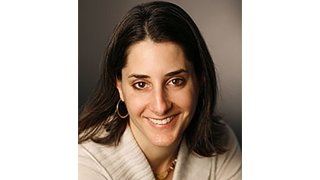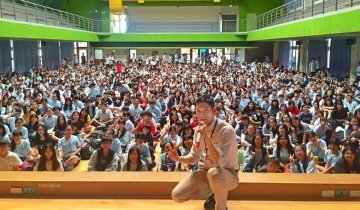Mary Helen Immordino-Yang, an associate professor of education, psychology and neuroscience at USC Rossier and the USC Brain and Creativity Institute, has been named a member of the National Commission on Social, Emotional, and Academic Development, a new committee created by the Aspen Institute this past week.
The Aspen Institute is among the country’s foremost organizations using scholarship to improve society, bringing researchers together to address complex global issues. According to the institute, the new council’s goal will be “to establish a critical need for integrating social and emotional development with academic learning in K-12 education,” culminating in a 5-10 year plan that recommends specific action in research, practice and policy. The Bill & Melinda Gates Foundation, the Joyce Foundation and others are funding the council’s work through 2018.
Social-emotional learning, which is at the center of Immordino-Yang’s research, has gained added emphasis under the federal Every Student Succeeds Act, signed into law by President Barack Obama in December 2015.
“In a time when America’s deep-running social inequities are bubbling to the surface of public consciousness, it is growing increasingly clear that schools have a major role to play—possibly the major role to play—in empowering the next generation of American citizens to rebuild a just, equitable and productive society,” Immordino-Yang says. “I am heartened that the Aspen Institute has organized a concerted initiative integrating efforts to support social, emotional and academic learning, and honored and humbled to participate.”
Current membership in the council is listed at 25 scholars and researchers.
This appointment is one of several recent honors for Immordino-Yang. She was one of 30 scholars chosen to participate in the AERA Knowledge Forum Centennial policy initiative. She is currently serving on the National Research Council/National Academies of Sciences committee writing the new edition of How People Learn.
Her work has also garnered recent media attention. In early September, her research on how poverty affects brain development in adolescents led a cover story in Newsweek. She was also featured in an episode of NOVA on PBS, exploring how neuroscience might help guide schools in the future. Last fall, she published the book Emotions, Learning, and the Brain: Exploring the Educational Implications of Affective Neuroscience (W. W. Norton & Co., 2015), which explains how emotions are central to the learning process.
Throughout her work, Immordino-Yang has expressed the urgency of considering the whole person when viewing children’s learning.
“Only when we understand how social, emotional and academic learning are co-dependent can we begin to make genuine and much-needed progress in education,” she says.
For media inquiries, please contact Ross Brenneman at rossbren@rossier.usc.edu or (213) 740-2327.




